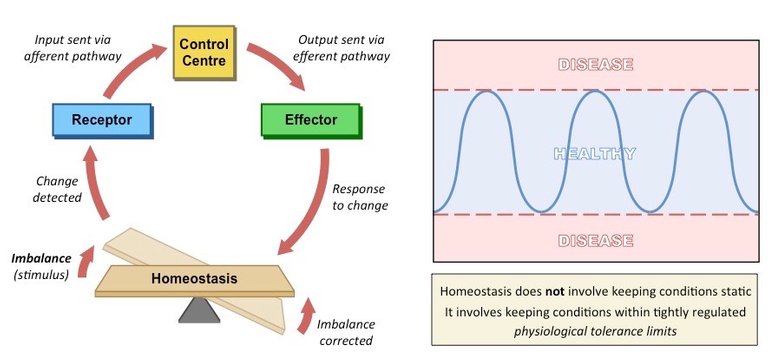Why do people resist change?
In our lives, we must constantly adjust things based on what is needed at the given moment in order to maximize our quality of life. However, when change is needed, people often resist it, even if it is change that will be highly beneficial for them. Why is this?
Our bodies have a natural tendency to resist change to maintain equilibrium in our internal systems. This keeps things like our body temperatures consistent so we remain healthy. The problem is, the body’s natural tendency to maintain homeostasis is also prevalent in all other aspects of our lives, which can hinder our growth. source
Homeostasis is resistant to all change, even good change. For example, if you normally wake up at 9 am, but decide that you want to start waking up at 5am, your body will have a hard time adjusting to this change. You may find your first attempts at waking up early unsuccessful because you feel unnecessarily tired and groggy. This is not because you are doing something harmful to your body, but because your body is not used to the sudden change. Without a good understanding on homeostasis, is likely that you will feel frustrated, and eventually give up. source
The concept of homeostasis also applies to families, social groups, and societies. Societies have rules and boundaries that have allowed them to thrive for a long time, as do families. They also have patterns and recurring events based on their structure that might be difficult to change. source
In the book “Mastery” by George Leonard, the author gives the example of a family where the father is a heavy alcoholic who creates constant chaos. The father decides to give up drinking, and at first the whole family is delighted. However, because of homeostasis, the family is not used to the newfound peace and quiet that has occurred, and in a matter of weeks, another member of the family does something to create havoc because they are used to a chaotic atmosphere in the house. This example demonstrates the sneaky ways in which homeostasis operates. source
Let’s look at another scenario. Say you decide to start working out a few times a week after being a couch potato for years. When you tell this to your friends, they commend you for your efforts to become healthier. However, after a few weeks, you might feel them resisting the change you made in your life. After all, they aren’t used to their lazy friend going to the gym, and they might start undermining your efforts. This may not be because they want to hurt you but because they are not used to you behaving this way. source
The idea or resisting change is what keeps us in toxic relationships and prevents us from taking important risks. In order to not be so vulnerable to homeostasis, an understanding of how it works is necessary.
We must become more aware of how homeostasis operates in our lives. When conflicts arouse, and we find ourselves resisting change, we must ask ourselves if homeostasis is playing a part in our reluctance to change and learn to negotiate with it. Only then can we live to our full potential without internal distractions.


People like to be conservative and every change can break their stability. Conservative people and stability are two same things. Sometimes conservative people can inhibit new innovations and many more
true, good point
good post, upvoted.
Thank you so much!